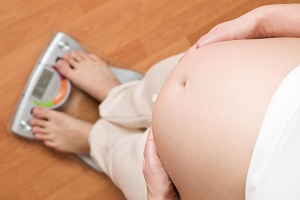A study by the Center Hospitalier Universitaire Sud Réunion proves the importance of losing weight during pregnancy. This obviously applies to very obese women, whose condition endangers their health and that of the child. In these cases, the traditional guidelines do not go well.
The study had two main objectives: to determine the best maternal BMI for the child's health; study the link between weight before gestation, weight gained in gestation and size of the newborn at birth. To this end, the team of Professor Pierre-Yves Robillard analyzed over 52.092 pregnancies completed between 2001 and 2007.
The researchers divided the women into groups and determined how much weight they should take based on their BMI. The idea was to establish a link between the maternal body mass index and the child's size at birth.
From what has emerged, very thin women tend to give birth to too young children and vice versa. In the middle there are the normal-weight women. The diet during pregnancy, however, would help to rebalance at least some of the most extreme situations. Very underweight women, with a body mass index of 17 kg / m2, should take about 21.6 kg. Obese women, with a BMI of 32 kg / m2, should take about 3.6 kg. Very obese women, on the other hand, should lose 6 kg.
From what emerges from the study, therefore, who has a body mass index of 40 kg / m2 should not take weight. On the contrary, these future mothers should even carry on a diet during gestation. This would decrease the risks associated with carrying on a pregnancy in a state of obesity. While not ensuring maximum safety, it would still allow the health of the child to be safeguarded.
Source: medscape.com
















